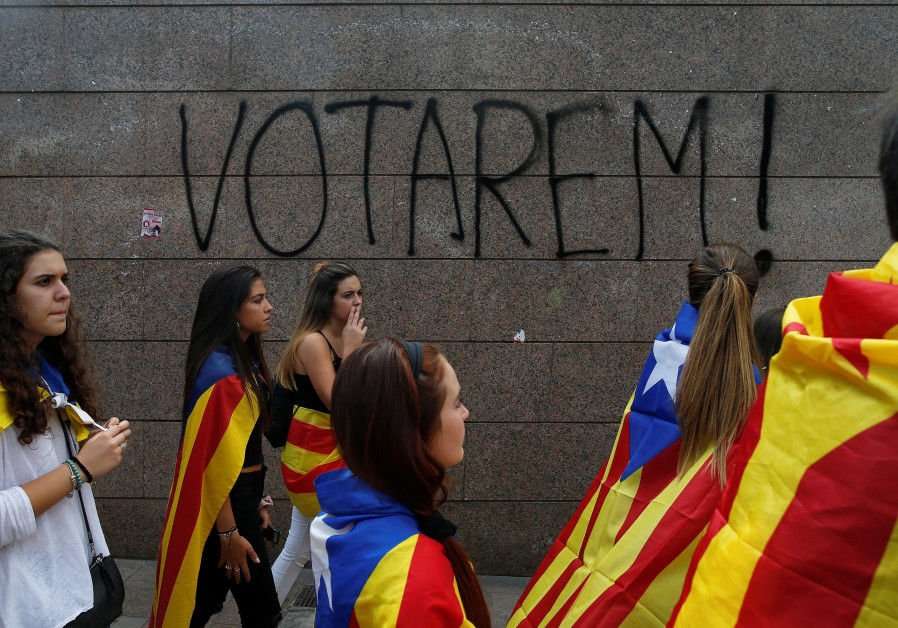A lot is at stake for the Jewish state when it is asked to weigh in on another people’s quest for independence.

While Israel has not yet come out with an official position on Catalonia’s independence declaration, government sources said it is clear Jerusalem cannot come out and support a move whereby a segment of a country’s population unilaterally declares independence.
The sources confirmed a Channel 10 report from Friday night that Spain has turned to Israel, as well as other friendly countries around the world, to issue a statement in favor of Madrid’s position against the independence move. The Spanish ambassador turned both to the Prime Minister’s Office and the Foreign Ministry regarding the issue.
The US, various European countries and Mexico have already issued statements on the matter in support of Madrid.
“Catalonia is an integral part of Spain, and the United States supports the Spanish government’s constitutional measures to keep Spain strong and united,” State Department spokeswoman Heather Nauert said on Friday.
While Israel is unlikely to support Catalonia, Prime Minister Benjamin Netanyahu last month was one of the only leaders in the world to come out in favor of the Iraqi Kurdish independence moves, which have since been partially quashed. But, as opposed to the situation in Spain, Jerusalem has a strategic interest in seeing the establishment in the Middle East of an independent Kurdish state.
President Reuven Rivlin is scheduled to travel to Madrid next Sunday for a three-day visit marking the 30th anniversary of the establishment of diplomatic relations between Israel and Spain. Jerusalem’s official position on the Catalonia issue will surely have to be formulated by then.
Rivlin, a guest of King Felipe, is also scheduled to meet Prime Minister Mariano Rajoy during the visit.
Following the referendum on Catalan independence on October 1, Foreign Ministry spokesman Emmanuel Nahshon, when asked about Israel’s stance on the issue, said, “We see it as an internal Spanish matter.”
In 2014 a Barcelona High Court judge, Santiago Vidal, said in an interview with a Spanish magazine that Israel and Germany may be key to initial financing of an independent Catalan state.
Vidal, an advocate of independence, predicted then that an independent Catalan state could be established in three years through “legal, political and peaceful means.” He said, however, that without being a member of the EU, this fledgling state could not get the Central Bank of Europe to finance its debts.
“But there is a solution for this, another state with solvency, basically speaking of Israel and Germany, will serve as our temporary bank,” he said.
When asked whether it was not a gamble to believe that Israel – facing calls for Palestinian independence – would back the Catalan cause, Vidal replied: “The Palestinian issue is characterized by violence whereas the Catalan issue is characterized by civic lessons, pacifism and the doing of good things that we are giving to the whole world. And this is something the Israelis like very much.”
As reported by The Jerusalem Post
